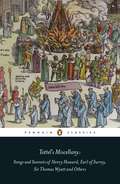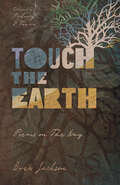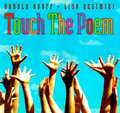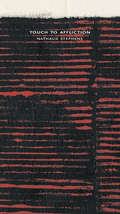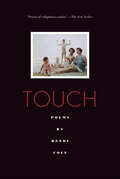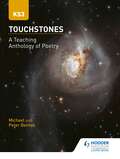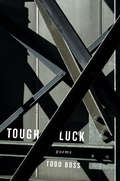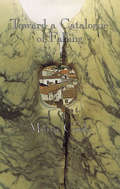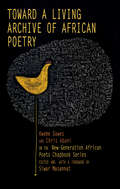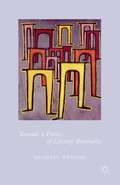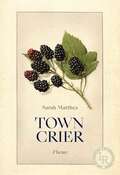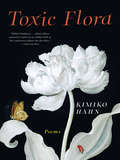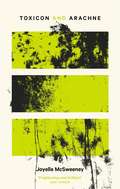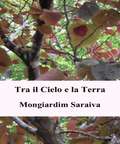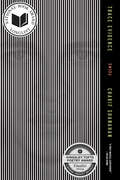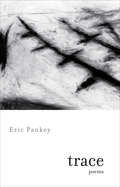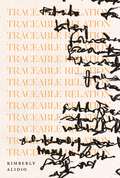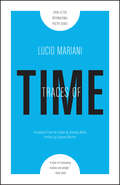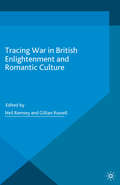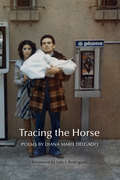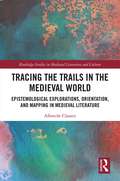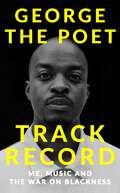- Table View
- List View
Tottel's Miscellany: Songs and Sonnets of Henry Howard, Earl of Surrey, Sir Thomas Wyatt and Others
by Amanda HoltonSongs and Sonnets (1557), the first printed anthology of English poetry, was immensely influential in Tudor England, and inspired major Elizabethan writers including Shakespeare. Collected by pioneering publisher Richard Tottel, it brought poems of the aristocracy - verses of friendship, war, politics, death and above all of love - into wide common readership for the first time. The major poets of Henry VIII's court, Sir Thomas Wyatt and Henry Howard, Earl of Surrey, were first printed in the volume. Wyatt's intimate poem about lost love which begins 'They flee from me, that sometime did me seke', and Surrey's passionate sonnet 'Complaint of a lover rebuked' are joined in the miscellany by a large collection of diverse, intriguingly anonymous poems both moral and erotic, intimate and universal.
Touch the Earth: Poems on The Way
by Drew JacksonTouch the EarthGod Speaks Through WombsTouch the EarthFrom the feeding of the multitude ("The best hosts always provide / take home containers”) to the resurrection of Jesus ("the belly of mother Earth / is, indeed, a womb . . . the humus of life is where we become fully human"), this collection helps us hear the hum of deliverance—against all hope—that's been in the gospel all along.
Touch the Poem
by Arnold Adoff Lisa DesiminiA collection of poems about the sense of touch including a baby's foot in one's palm, peach fuzz on the lip, and the forehead against a cold window.
Touch to Affliction
by Nathalie StephensFrom the ruins of poetry, fiction and philosophy comes Touch To Affliction, a meditation on the notion of homeland, on patrie and the inhumanity that arises from it.This is a text obsessed with ruins: the ruins of genre, of language, of the city, of the body. The history of the twentieth century is a history of barbarism, and Stephens walks, like a flâneur, through its midst, experiencing through her own body the crumbled buildings, the dessicated cities, the eviscerated language and humanity of our time, calling out in passing to those before her who have contemplated atrocity: Martin Buber, Henryk Gorecki, Simone Weil. In the end, it considers what we are left with - indeed, what is left of us - as both participants in and heirs to the twentieth century. Insistently political but never polemical, Touch To Affliction, at the interstices of thought and the unnameable, is at once lament, accusation and elegy.About Paper City: 'Understanding is almost antithetical to the project Stephens seems to have assigned herself, that of unraveling or radically altering our sense of logic, of language, of narrative, of body, of desire, of words on paper. She wants the book to burn in our hands and, indeed, it does.' - NewPages
Touch: Poems
by Henri ColeHenri Cole's last three books have shown a continuously mounting talent. In his new book, Touch, written with an almost invisible but ever-present art, he continues to render his human topics—a mother's death, a lover's addiction, war—with a startling clarity. Cole's new poems are impelled by a dark knowledge of the body—both its pleasures and its discontents—and they are written with an aesthetic asceticism in the service of truth. Alternating between innocence and violent self-condemnation, between the erotic and the elegiac, and between thought and emotion, these poems represent a kind of mid-life selving that chooses life. With his simultaneous impulses to privacy and to connection, Cole neutralizes pain with understatement, masterful cadences, precise descriptions of the external world, and a formal dexterity rarely found in contemporary American poetry.Touch is a Publishers Weekly Best Poetry Books title for 2011.
Touchstones: A Teaching Anthology of Poetry
by Michael Benton Peter BentonDevelop a love for poetry at key stage three with the trusted Touchstones series. This diverse selection of over 150 poems features thought-provoking contemporary voices and much-loved favourites. Touchstones: A Teaching Anthology of Poetry will help you to:· Explain and contextualise poems across a broad range of genres and themes· Support your lessons with over 100 ready-made activities designed for independent, paired and group work· Challenge your students with additional activities specifically designed to stretch their learning· Build the skills required for the poetry element of the latest GCSE English Literature specifications, with chapters dedicated to comparative and unseen poetry· Introduce a range of poets commonly studied at GCSE, from William Wordsworth to Imtiaz Dharker· Introduce a range of contemporary poets, such as Kate Clanchy and Holly McNish, alongside more familiar classics· Support the implementation of the 2014 national curriculum at Key Stage 3
Touchstones: A Teaching Anthology of Poetry
by Michael Benton Peter BentonDevelop a love for poetry at key stage three with the trusted Touchstones series. This diverse selection of over 150 poems features thought-provoking contemporary voices and much-loved favourites. Touchstones: A Teaching Anthology of Poetry will help you to:· Explain and contextualise poems across a broad range of genres and themes· Support your lessons with over 100 ready-made activities designed for independent, paired and group work· Challenge your students with additional activities specifically designed to stretch their learning· Build the skills required for the poetry element of the latest GCSE English Literature specifications, with chapters dedicated to comparative and unseen poetry· Introduce a range of poets commonly studied at GCSE, from William Wordsworth to Imtiaz Dharker· Introduce a range of contemporary poets, such as Kate Clanchy and Holly McNish, alongside more familiar classics· Support the implementation of the 2014 national curriculum at Key Stage 3Michael Benton has recently published a new collection of poetry: 'In the Mind's Eye'. Available in bookstores now.
Tough Luck: Poems
by Todd Boss“[Todd Boss]’s poems generate their own rambunctious music and remind us ‘yes, / miracles happen.’ ”—Minneapolis Star Tribune At the center of Tough Luck is a poem about the ill-fated I-35W Bridge in Minneapolis and its disastrous collapse, which killed 13 people and injured 145. The freighted, swiftly moving poems in Tough Luck crisscross the chasm between peril and safety as if between opposing riverbanks, revealing a frequently heart-stopping view of the muscled waters below. Marriage, family, home—all come crashing down, but Todd Boss rebuilds with his trademark musicality and “a reverent gusto for representing the tactile aspects of human life” (Tony Hoagland). From “In the End a Gardener”: is what we want in our corner of paradise. Someone alert to the slant of one hour of afternoon sunlight or other, who knows what to plant there, knows what will thrive.
Toward a Catalogue of Falling
by Méira CookShortlisted for the 1997 Pat Lowther Award and for the 1997 McNally Robinson Book of the Year Award Toward a Catalogue of Falling, Meira Cook's second full-length book, proves that the fall into language can be both graceful and startling. Whether she is rewriting Hans Christian Anderson's "The Little Mermaid" (as she does in her poem sequence "Days of Water"), thinking of Breughel's/Williams'/ Auden's Icarus, reading oranges, or offering advice for catching crows, Cook's words are luminous. Language is a character in these poems, along with circus performers, Venetian tour guides, clumsy sons and migrating geese. Cook writes poems that bless hearts turned to salt, and revive the silenced energies of words. Always unexpected, always elegant, this is language that endures.
Toward a Living Archive of African Poetry: Kwame Dawes and Chris Abani on the New-Generation African Poets Chapbook Series
by Chris Abani Kwame DawesCelebrating ten years of New-Generation African Poets, Toward a Living Archive of African Poetry presents Kwame Dawes and Chris Abani’s unprecedented disquisition on the state of African poetry. TOWARD A LIVING ARCHIVE OF AFRICAN POETRY collects Kwame Dawes’s and Chris Abani’s introductory essays for the New-Generation African Poets Chapbook Box Set Series. These essays are conversations that celebrate the work of emerging African poets and build—meticulously and with principled care—a vision of a pluralistic literary community in which poets may thrive. Over more than ten years, Dawes and Abani have offered readers a glimpse into their editorial labor and philosophy, which are guided by generosity and curiosity and trust in the work of African poets. Dawes’s and Abani’s editorial labor is a gift, an expansive curation that honors the past, present, and future of African literature. In 2024, the APBF celebrates the publication of the tenth edition of the New-Generation African Poets Chapbooks Box Sets. Each of the box sets, edited by Kwame Dawes and Chris Abani, feature a selection of chapbooks by emerging African authors who have not yet published a full-length collection of poetry. Many thought-provoking threads related to African poetics appear across the essays. They advance a transnational vision of and for African poetry, one arising from their literary leadership to imagine and create a landscape in which the work of as many poets as possible can thrive, receive recognition, and be preserved for future generations. For, as they mention in their introduction to NANE, "the idea of a poetic community enacts the promise of being seen."
Towards a Poetics of Literary Biography
by Michael BentonDrawing upon a wide range of biographies of literary subjects, from Shakespeare and Wordsworth to William Golding and V.S. Naipaul, this book develops a poetics of literary biography based on the triangular relationships of lives, works and times and how narrative operates in holding them together. Biography is seen as a hybrid genre in which historical and fictional elements are imaginatively combined. It considers the roles of story-telling, factual data in the art of life-writing, and the literariness of its language. It includes a case study of the biography of Ellen Terry, discussion of the controversial relationship between a subject's life and works, 'biographical criticism' and, through the issue of gender, the social and cultural changes biographies reflect. It frames a poetics on the basis of its strategy and tactics and demonstrates how the literal truth of verifiable data and the poetic truth of what is narrated are interdependent.
Town Crier: Poems
by Sarah MatthesKabbalistic poems that recognize wit as a ritual of mourning, winner of the 2020 Lexi Rudnitsky First Book Prize The poems in Town Crier wryly express the pervasive nature of loss, how it suffuses all aspects of a life: memories, hopes, love, sex, lunch. The death of the author’s dear friend, the late poet Max Ritvo, becomes the cornerstone of the book, a foundational pain along which the poems are aligned. The poems grieve. They try to cope. They come up short. They try again, insisting as they do that language holds consequential, redemptive powers. Sarah Matthes is equal parts jester and conjurer, sensing the precious alchemy of laughter and lament, crying out to those who have left her and those who remain.
Toxic Flora: Poems
by Kimiko Hahn"[Kimiko] Hahn's frankness . . . allows [these poems] to stand out as starkly fresh as the carnivorous plants she describes."--American Poet For Kimiko Hahn, the language and imagery of science open up magical possibilities for the poet. In her haunting eighth collection inspired by articles from the weekly "Science" section of the New York Times, Hahn explores identity, extinction, and survival using exotic tropes drawn from the realms of astrophysics, mycology, paleobotany, and other rarefied fields. With warmth and generosity, Hahn mines the world of science in these elegant, ardent poems. from "On Deceit as Survival" Yet another species resembles a female bumble bee, ending in frustrated trysts-- or appears to be two fractious males which also attracts--no surprise-- a third curious enough to join the fray. What to make of highly evolved Beauty bent on deception as survival--
Toxicon & Arachne
by Joyelle McSweeney'The power of McSweeney's work cannot be separated from its association with forms of oracle and soothsaying, and so it is uncanny that it should arrive in the middle of a global pandemic... Frightening and brilliant' Dan Chiasson, New YorkerHow does the body gestate grief? How does toxicity birth catastrophe?In the months leading up to her daughter Arachne's birth, US poet Joyelle McSweeney set out to write a quiver of poems like a quiver of poison arrows: formally and sonically virtuosic, laced with the poet's obsessive concerns with contamination, decay and the sublime, featuring a crown of 'toxic sonnets' for the tuberculosis bacterium that killed Keats. But when Arachne was born with an unexpected birth defect, lived briefly and died, the poet was visited by a second welter of poems, odes of love, grief, perplexity and rage. These two books, Toxicon & Arachne, form a double collection of poems weighing love, grief, art and survival in increasingly toxic days.Toxicon & Arachne is the culmination of eight years of engagement with lyric under a regime of global and personal catastrophes.
Tra il Cielo e la Terra
by Antonio Carlos Mongiardim Gomes Saraiva Annalisa Farina"Tra il Cielo e la Terra", em inglês, espanhol, italiano, espanhol, espanhol e português. As informações seguintes não estão ainda disponíveis em Português. Para sua comodidade, disponibilizamos uma tradução automática: Cielo onírico, lutar e delle grandi verità do nostro io profondo, sembra aver bisogno di una comunione e di un'integrazione forte with the Natura e l'Universo, nella sua dimensión infinita ... Questo mondo è rappresentato in quest'opera Con la "Poesia". L'altra metà, i "Testi" (prosa), introduzir a sensação da realidade real e cruda do cimento terrene e comuni. Ancora sorgono, in questo contesto, frammenti di idee e pensieri su temi qua coinvolgono e integrano. È in questa costante e dinamica alternância para a ópera e a realização, cercando de condume il lettore su una strada tortuosa e suggestiva. Dove le preoccupazioni, i dubbi, i sogni e le realizzazioni, sono parte integrante dello stesso viagra misterioso ed emocionante che è la vita.
Trace Evidence: Poems
by Charif ShanahanWinner of the Whiting Award Winner of the Thom Gunn Award Winner of the Lambda Literary Award for Gay Poetry Finalist for the National Book Critics Circle Award Finalist for the Kingsley Tufts Poetry Award Longlisted for the National Book Award for Poetry “A truly magical achievement.” —Ocean Vuong In Trace Evidence, the urgent follow-up to his award-winning debut Into Each Room We Enter without Knowing, Charif Shanahan continues his piercing meditations on the intricacies of mixed-race identity, queer desire, time, mortality, and the legacies of anti-Blackness in the US and abroad. At the collection’s center sits “On the Overnight from Agadir,” a poem that chronicles Shanahan’s survival of a devastating bus accident in Morocco, his mother’s birth country, and ruminates on home, belonging, and the mysteries of fate. With rich lyricism, power, and tenderness, Trace Evidence centers the racial periphery and excavates the vestiges of our violent colonial past in the most intimate aspects of our lives. In a language yoked equally to the physical and metaphysical worlds, the poet articulates the need we all share for real intimacy and connection, and proves, time and again, that the true cost of our separateness is the love that our survival requires.
Trace: Poems
by Eric PankeyHis arresting ninth collection of poems, Eric Pankey's Trace locates itself at a threshold between faith and doubt-between the visible and the invisible, the say-able and the ineffable, the physical and the metaphysical. Also a map of the poet's journey into a deep depression, these poems confront one man's struggle to overcome depression's smothering weight and presence. And with remarkable clarity and complexity, Trace charts the poet's attempt to be inspired, to breathe again, to give breath and life to words. Ever solemn, ever existential, Pankey's poems find us at our most vulnerable, the moment when we as humans-believers and nonbelievers alike-must ultimately pause to question the uncertain fate of our souls.
Traceable Relation
by Kimberly AlidioA collection of linked essays and poems concerned with the vitality of art and writing in the wake of grief. At the intersections of poetry, sonic/ visual text, nonfiction, and arts writing, Traceable Relation portrays a writer’s practice within a lineage of aesthetic and practical sensibilities conveyed in the personal effects of her late father and the concrete tasks of communal mourning. In her ongoing practice of “speaking nearby” various works of film, sound installation and pop music, innovative, contemporary writing emerges from the diasporic arts of memory and survivance.
Traces of Time
by Lucio Mariani Anthony Molino"Mariani has emerged as one of the few significant post-Montalian poets in Italy, and Molino is a graceful, experienced, thoroughly reliable translator. The result is an elegant book, an important book, bringing a distinctive voice into English."--Rosanna WarrenCulled from his entire career, the poems in Traces of Time cover numerous themes, most prominently the poet's relationship to history and how poetry can exist outside of it. "Tiananmen, 20 Years Later," "Protocols of War," and "Checkmate" (about 9/11) all illustrate Lucio Mariani's concerns "through images both dense and porous, lines both cadenced and spasmodic," and confirm his place in contemporary poetry."Protocols of War"(Baghdad is not far)Of this time you'll gather no memoriesfor your eternal hunger.Can't you see the slags in the weavethat enfolds the flesh of the living?Can't you see that the boxes and drawerswhere the silver of bygone days aboundshave no room for trinkets or seashellsof a present founded on plaster markets,lost facing a mirrorseeking itself in the halls of the world?Don't you see that for the first timeevery man erects ruins for his heirsenacting inane protocols of warwhile the future slams its shutters tightso as to celebrate on statistical altarsthe glory of mindless marionettesmaneuvered by nothingness,sprung in the bitter fields of oblivion?Of this time you'll gather no memories.Lucio Mariani is the author of eight volumes of poetry, including Echoes of Memory (available in English from UPNE), as well as a volume of essays, a collection of short stories, and translations of works by César Vallejo, Tristan Corbière, and Yves Bonnefoy.Anthony Molino is a translator from the Italian, an anthropologist, and a psychoanalyst. In addition to Lucio Mariani's two volumes, he has also translated works by Valerio Magrelli and Antonio Porta, among others.
Tracing War in British Enlightenment and Romantic Culture (Palgrave Studies in the Enlightenment, Romanticism and Cultures of Print)
by Gillian Russell Neil RamseyThis volume argues for the enduring and pervasive significance of war in the formation of British Enlightenment and Romantic culture. Showing how war throws into question conventional disciplinary parameters and periodization, essays in the collection consider how war shapes culture through its multiple, divergent, and productive traces.
Tracing the Horse: A Suburban Bestiary (New Poets of America #43)
by Diana Marie DelgadoSet in Southern California's San Gabriel Valley, Diana Marie Delgado’s debut poetry collection follows the coming-of-age of a young Mexican-American woman trying to make sense of who she is amidst a family and community weighted by violence and addiction. With bracing vulnerability, the collection chronicles the effects of her father’s drug use and her brother’s incarceration, asking the reader to consider reclamation and the power of the self.
Tracing the Trails in the Medieval World: Epistemological Explorations, Orientation, and Mapping in Medieval Literature
by Albrecht ClassenEvery human being knows that we are walking through life following trails, whether we are aware of them or not. Medieval poets, from the anonymous composer of Beowulf to Marie de France, Hartmann von Aue, Gottfried von Strassburg, and Guillaume de Lorris to Petrarch and Heinrich Kaufringer, predicated their works on the notion of the trail and elaborated on its epistemological function. We can grasp here an essential concept that determines much of medieval and early modern European literature and philosophy, addressing the direction which all protagonists pursue, as powerfully illustrated also by the anonymous poets of Herzog Ernst and Sir Gawain and the Green Knight. Dante’s Divina Commedia, in fact, proves to be one of the most explicit poetic manifestations of the fundamental idea of the trail, but we find strong parallels also in powerful contemporary works such as Guillaume de Deguileville’s Pèlerinage de la vie humaine and in many mystical tracts.
Track & Trace
by Seth Zachariah WellsThe poems in Zachariah Wells's second collection range from childhood to dimly foreseen events in the future; they idle on all three of Canada's coasts, travel the open road, take walks in the city and pause on the banks of country streams and ponds.
Track Record: THE REVOLUTIONARY MEMOIR FROM THE UK'S MOST CREATIVE VOICE
by George the PoetThe ground-breaking memoir by acclaimed rapper and podcast host, George the PoetBorn to Ugandan parents on the St Raphael's Estate in Neasden, north-west London, George has always been an ambitious storyteller. Influenced by his hometown, George started MCing , and eventually found his voice in poetry and with it an avenue for change.Track Record: Me, Music, and the War on Blackness sheds light on George's upbringing and artistic career. He looks back at his education, his time at university, and his beginnings as a musician. We are given an insight into the forces that have shaped him and the stories he chooses to tell. As with George's other work, Track Record goes beyond the traditional memoir and takes the reader on a journey throughout history. George dives deep into the complexities of the economy and interrogates the legacy of colonialism. He reflects on music and its power as a political force - how it can be a catalyst for social power and economic change. By weaving a story that is both personal and political, George delivers an incredibly powerful and unique perspective on the world around us. Honest, thought-provoking and lyrical, Track Record is a fascinating insight by an inimitable storyteller.
Track Record: THE REVOLUTIONARY MEMOIR FROM THE UK'S MOST CREATIVE VOICE
by George the Poet**The ground-breaking memoir by acclaimed rapper and podcast host, George the Poet**__________'When Grime became the soundtrack to our lives, it gave a voice to the hustle. We were all looking for money, but it was deeper than that; we were looking for a future.'George the Poet knows better than anybody the importance of understanding your surroundings. Born to Ugandan parents on the St Raphael's Estate in Neasden, north-west London, George Mpanga has always been aware of his community. It was both his teacher and his inspiration - giving him the language, the experiences, and the skills to become the person he is today.In Track Record, George unveils the power dynamics that shape our world, shedding light on the forces that restrict Black creativity and put limits on Black excellence. By interrogating the history of colonialism and exploring capitalism's racist legacy, George offers a fresh perspective on the world around us.Delving into the music scene and iconic films from his childhood, as well as crucial political and economic moments in history, this book provides the backstory of where we are today.Honest, thought-provoking, and passionate, Track Record is a ground-breaking memoir by one of the UK's most unique voices.__________(P)2023 Hodder & Stoughton Limited
